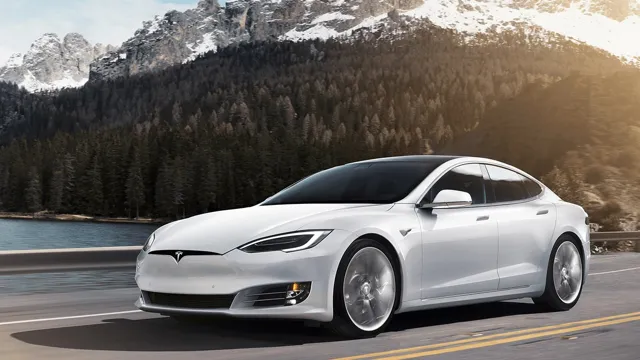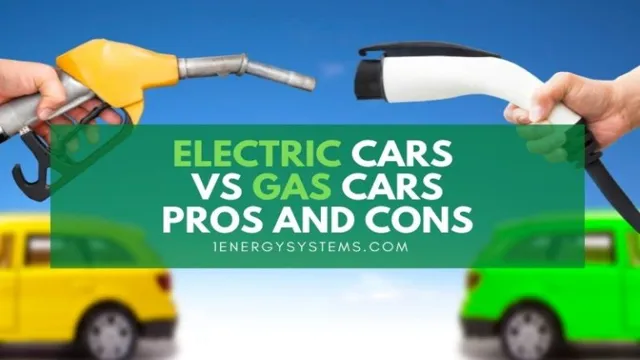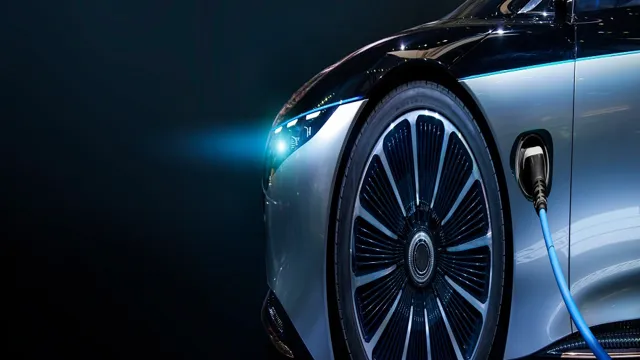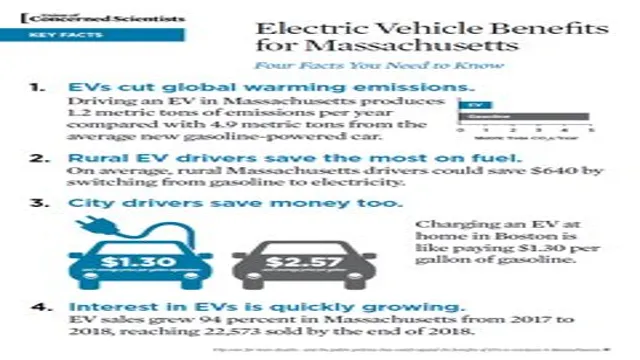Driving the Future: Discover the Unmatched Benefits of Electric Cars in Norway
Have you ever wondered why electric cars are so popular in Norway? Well, there are actually a number of benefits that come from driving these eco-friendly vehicles in this Scandinavian country. For starters, electric cars are exempt from Norway’s hefty toll fees and high taxes on traditional gasoline and diesel cars. Not to mention, they’re also allowed to use bus lanes and have free parking in many areas.
But those are just a few of the perks. In this blog post, we’ll explore the many advantages of driving an electric car in Norway, from reduced emissions to lower maintenance costs, and why it’s become such a popular choice for drivers looking to reduce their carbon footprint. So buckle up and get ready to learn more about why electric cars are all the rage in Norway.
Environmental Benefits
Norway is leading the way in electric car adoption, as there are a number of environmental benefits associated with making the switch from petrol to power. Firstly, electric cars have no exhaust emissions, meaning that they don’t contribute to air pollution. This is particularly important in urban areas where traffic congestion can lead to high levels of nitrogen dioxide and particulate matter.
Electric cars also emit less greenhouse gases than petrol cars, meaning that they have a lower carbon footprint. In addition, Norway’s use of renewable energy sources to power its electric cars means that the overall environmental impact is much lower. Another benefit of electric cars is that they’re much quieter than petrol cars, reducing noise pollution and making our cities more peaceful places to live.
Finally, electric cars require less maintenance than their petrol counterparts, reducing the amount of waste generated and the associated costs. Overall, there are a multitude of benefits to driving an electric car in Norway, not only for the driver but for the environment as well.
Reduction in carbon emissions
Reduction in carbon emissions can have numerous environmental benefits. One of the primary benefits of reducing carbon emissions is the prevention of climate change. Carbon emissions cause global warming, which leads to increased temperatures, rising sea levels, and other environmental problems that can be catastrophic for ecosystems and humanity.
Furthermore, reducing carbon emissions can help to improve air quality, making it safer for people to breathe. Carbon emissions are a significant contributor to air pollution and can lead to respiratory problems, heart disease, and other health issues. Lower carbon emissions also mean fewer greenhouse gases in the atmosphere, which can help to preserve biodiversity by reducing the impacts of climate change on wildlife.
By reducing carbon emissions, we are taking a significant step towards building a more sustainable future for ourselves and the planet.

Improved air quality
Improved air quality is one of the most significant environmental benefits that we can experience from reducing carbon emissions. It is no secret that air pollution is a massive issue globally, causing severe respiratory problems, cardiovascular disease, and lung cancer, among other health problems. By transitioning to clean energy sources like solar, wind, and hydropower, we can eliminate a significant amount of pollution that comes from burning fossil fuels.
As a result, we would have cleaner air to breathe, and the respiratory and cardiovascular illnesses that are currently getting more common would be reduced. We have to understand that our daily activities contribute to carbon emissions, so it is important to make lifestyle changes that would help decrease emissions. By biking instead of driving to work, planting trees, investing in renewables, and reducing our overall energy consumption, we can all do our part in improving air quality and creating a healthier environment for ourselves and future generations.
Reduced noise pollution
Reducing noise pollution is becoming a significant concern in many communities worldwide. With technological advancements, noise levels are often higher than ever before, causing a wide range of problems to both people and the environment. However, the benefit of reduced noise pollution cannot be overemphasized as it has a positive effect on the environment.
When there is less noise, it results in the ecosystem’s overall calmness, reduced stress on wildlife, and the availability of habitats for an extended period. It also creates a more calm, peaceful environment and makes it more conducive for living, especially when you consider the physical and psychological impact of persistent noise. In essence, reducing noise pollution has enormous benefits that promote the well-being of both humans and the environment.
As we strive to reduce noise pollution, we must also strive to raise awareness of its impact, enact laws that limit it, and consistently improve on technology that minimizes noise from industrial activities, transportation, and the likes.
Financial Benefits
Electric cars are becoming more popular in Norway due to the financial benefits that come with owning one. Drivers of electric vehicles do not have to pay the hefty tax on sales that is imposed on traditional cars, making electric cars more affordable to purchase. Additionally, electric car owners are exempt from road tolls and ferry charges, which can quickly add up over time.
Charging points for electric cars are also widely available and often free of charge. Furthermore, driving an electric vehicle in Norway comes with a reduced cost of insurance due to the lower risk of accidents and reduced maintenance costs due to the simplicity of the electric engine. All of these financial benefits make owning an electric car in Norway an appealing option for consumers looking to save money while also benefiting the environment.
Exemption from high road tax
When it comes to owning a car, there are many costs to consider, including the obligatory road tax. However, there are ways to obtain an exemption from paying high road tax, which can help save you money in the long run. One such way is by owning a low-emission vehicle.
Cars that emit less CO2 are considered more environmentally friendly, and owners of these vehicles are rewarded with a lower tax bill. This not only benefits the environment but also your wallet. Investing in a low-emission vehicle may seem like a higher upfront cost, but the savings in road tax fees could outweigh that cost over time.
So, if you’re looking for a way to financially benefit from owning a car, consider investing in a low-emission vehicle that qualifies for a road tax exemption.
Toll-free travel and free parking
When it comes to travel, toll-free roads are a dream come true. Not only do they save us money, but they also save us time. Imagine being able to drive from one end of the country to the other without having to pull out your wallet every few miles.
Toll-free travel is not just a convenience, but a financial benefit as well. Furthermore, free parking is another often-overlooked financial benefit of travel. When you park at a paid parking garage, you’re spending money that could be better spent on souvenirs or experiences.
By looking for free parking options, you’ll not only save a few dollars, but you may also stumble upon unique and interesting areas you might have otherwise missed. There’s something special about finding a hidden gem that only locals know about. So next time you hit the road, keep an eye out for toll-free routes and free parking options and enjoy all the financial benefits that come with them.
Reduced maintenance costs
Reduced maintenance costs are one of the financial benefits of investing in quality products. While it may seem like a budget-friendly option to go for cheaper products, it often results in higher maintenance costs in the long run. Low-quality items tend to break down easily, requiring frequent repairs or replacements, which can be quite costly.
On the other hand, investing in high-quality products that are durable and reliable can greatly reduce maintenance costs. For instance, buying a quality car with a durable engine and parts saves you from frequent visits to the mechanic and costly spare parts replacements. Similarly, purchasing quality home appliances with a sturdy build can save you from regular repair costs and the need for buying replacements.
In brief, investing in quality products may come with a higher upfront cost, but it saves you money in maintenance costs in the long run, making it a wise financial decision.
Convenience Benefits
Norway’s shift towards electric cars has brought about numerous convenience benefits that have made car ownership easier. These benefits include lower operating costs, reduced maintenance requirements, and fewer emissions. Electric cars are notably cheaper to refill, and battery-based cars require less maintenance compared to traditional engines.
Additionally, the high demand for electric charging stations has prompted Norway to invest in infrastructure. By 2019, the country had over 10,000 charging stations, ensuring that electric car owners can recharge their cars conveniently. Furthermore, owners do not experience range anxiety, as the vehicles can cover long distances without recharging and recharge relatively quickly in public charging stations.
These benefits have led to an upsurge in electric car ownership in Norway, with over 75,000 electric cars registered by December 2020. Thus, electric cars play a crucial role in sustainable living and are also viable transportation options for everyday use.
Access to bus and taxi lanes
When it comes to getting around in the city, access to bus and taxi lanes can provide a great deal of convenience. With many major roads becoming more congested each year, having a dedicated lane for buses and taxis can help cut down on travel time and make your journey smoother. There’s nothing worse than being stuck in gridlock traffic and watching as the minutes tick by.
But with access to bus and taxi lanes, you can bypass all of that and get to your destination quicker. Plus, it’s more environmentally-friendly than sitting in your own car alone in traffic. By taking advantage of these lanes, not only will you save time and reduce your carbon footprint, but you’ll also have a more pleasant and stress-free commute.
So next time you’re planning your route, be sure to factor in bus and taxi lanes for a smooth ride.
Charging infrastructure
As more and more electric vehicles hit the road, the need for charging infrastructure has become increasingly important. Not only does having accessible charging stations contribute to reducing range anxiety, but it also provides convenience benefits for EV drivers. With the ability to charge while running errands or grabbing a bite to eat, charging infrastructure allows for seamless integration of EVs into daily life.
Imagine being able to park your car and charge it up while you enjoy a meal or run some quick errands. This level of convenience is unmatched for traditional gas-powered vehicles, as finding a station and waiting in line can be a hassle. Charging infrastructure provides a seamless transition to electric driving and ultimately helps to reduce emissions, making it a win-win for all.
Future of Electric Cars in Norway
Norway has been leading the way in electric car adoption in recent years, with more than half of all new cars sold in the country being electric. This trend shows no signs of slowing down as the government continues to offer a range of incentives to encourage people to switch to electric vehicles. These benefits include exemptions from road tolls, reduced taxes, and free parking in some areas.
Additionally, the country’s extensive network of charging stations means that range anxiety is not an issue for electric car drivers. This combination of government support, infrastructure, and consumer demand makes Norway an ideal market for automakers looking to sell their electric vehicles. As electric car technology continues to improve, it’s likely that other countries will follow Norway’s lead in promoting sustainable transportation solutions.
Conclusion
Norway proves that electric cars are not only environmentally friendly but also economically beneficial. With various incentives and perks such as tax exemptions, toll road exemptions, and cheaper parking fees, Norway’s electric car industry is booming. In fact, electric cars now make up more than half of all new car sales in the country.
It seems that Norway has truly charged ahead in embracing the future of sustainable transportation and has left the rest of the world trailing in its wake. So, if you still haven’t gone electric, maybe it’s time to step on the pedal and accelerate towards a brighter, cleaner world – just like Norway!”
FAQs
Why is Norway considered a leader in electric cars?
Norway is considered a leader in electric cars due to its government incentives and policies that encourage the use of electric vehicles, such as tax exemptions, toll-free roads, and free public charging stations.
What are the environmental benefits of using electric cars in Norway?
Electric cars in Norway produce significantly less greenhouse gas emissions and air pollution compared to traditional gas-powered cars. This helps to improve air quality and reduce the country’s carbon footprint.
How much money can one save by switching to an electric car in Norway?
Drivers can save money on fuel and maintenance costs by switching to an electric car in Norway. Electric cars can also be exempt from taxes and tolls, providing additional cost savings.
What is the future of electric cars in Norway?
The Norwegian government has set an ambitious goal of having all cars sold in the country be zero-emission by 2025. This means that electric cars will likely continue to play an increasing role in the country’s transportation system in the future.





